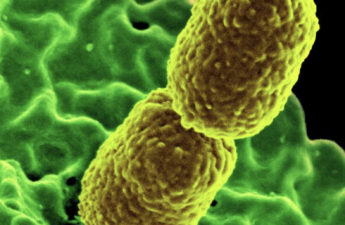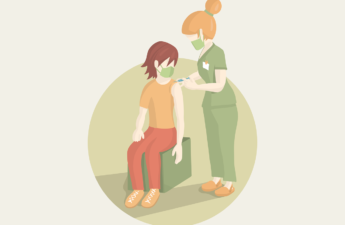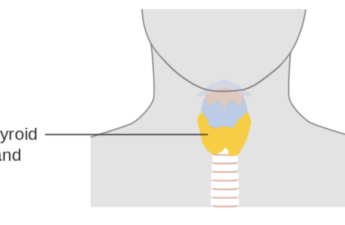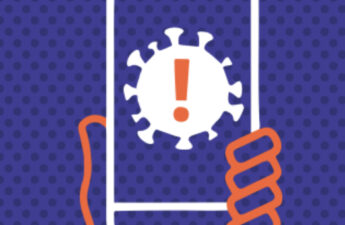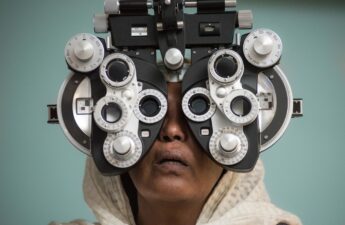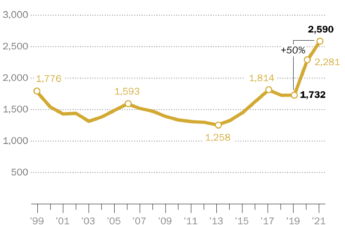Later this month, the hospital, founded in 1949 near the shores of Lake Pend Oreille, will stop providing services for expectant mothers, forcing patients across northern Idaho to travel at least an additional hour for care. In June, a second Idaho hospital, Valor Health, in the rural city of Emmett, will also halt labor and delivery services. Those decisions came within months of Idaho’s abortion ban, one of the nation’s strictest.
Acetaminophen overdose is a leading cause of liver injury, but it is largely preventable
Acetaminophen is in more than 600 products, including many over-the-counter pain and cold remedies, is a leading cause of acute liver injury, which can be fatal without a rescue liver transplant. With millions around the world using acetaminophen every day, why are so few people aware of the dangers of overdose?
How good is ChatGPT at diagnosing disease? A doctor puts it through its paces
Is our virtual doctor ready to see us yet? Not quite. We need to put more knowledge into it, learn to communicate with it and, finally, get it to overcome its prudishness when discussing problems we don’t want our families to know about.
Q & A on recent Klebsiella outbreak at Virginia Mason Franciscan Health Medical Center
As of April 28th, 31 people who were treated at the hospital have have fallen ill with the bacteria and 7 have died.
Millions of Kids Could Lose Health Coverage as States Purge Medicaid Rolls
Now that the COVID-19 public health emergency is ending, states are once again free to verify that enrollees are still qualified and cancel their coverage if they’re not. Experts warn that states could sever as many as 15 million Americans, including 7 million children, from the health coverage they relied on through the pandemic.
Oral sex is now the leading risk factor for throat cancer
Over the past two decades, there has been a rapid increase in throat cancer in the west, to the extent that some have called it an epidemic. This has been due to a large rise in a specific type of throat cancer called oropharyngeal cancer (the area of the tonsils and back of the throat). The main cause of this cancer is the human papillomavirus (HPV), which are also the main cause of cancer of the cervix. Oropharyngeal cancer has now become more common than cervical cancer in the US and the UK. HPV is sexually transmitted. For oropharyngeal cancer, the main risk factor is the number of lifetime sexual partners, especially oral sex. Those with six or more lifetime oral-sex partners are 8.5 times more likely to develop oropharyngeal cancer than those who do not practise oral sex.
Why you need to stop scrolling in the bathroom
Research has also found that even if you clean your phone with antibacterial wipes or alcohol it can still be recolonised by microorganisms, indicating that sanitisation must be a regular process.
My scan shows I have thyroid nodules. Should I be worried?
Thyroid nodules are very common, with more than half of people scanned show small nodules. At age 30 it is estimated around 30% of women will have a nodule. By age 70, approximately 70% of women will have at least one. Most never cause problems. But when should you follow up and get treatment?
Washington state COVID-19 exposure app to end May 11
As the Public Health Emergency ends, high levels of vaccination, combined with widespread population immunity and available treatments, have significantly reduced the risk of severe illness, hospitalization, or death from COVID-19
Free Dental, Vision and Medical Care Offered for People in Need
Seattle/King County Clinic returns for an eighth year to Seattle Center, April 27 – 30, with free dental, medical, and eye care services for those who struggle to access or afford healthcare.
Emergency contraception is often confused with abortion pills – here’s how Plan B and other generic versions work to prevent pregnancy
There are two types of emergency contraception pills. The most widely known is levonorgestrel, which is sold in the U.S. under the brand name Plan B, along with numerous generic versions. The second type of emergency contraception pill is ulipristal acetate, which is sold under the brand name ella. Both Plan B and ella work by delaying ovulation
Gun Deaths Drive Historic Spike in Child Mortality Rates
After decades of steady improvement, the death rate of America’s children and teens shot up between 2019 and 2021 — and COVID-19 wasn’t the reason.
After Nashville Shooting, Democratic States Push for New Gun Restrictions
In Washington state, Democrats are expecting to enact legislation that would ban semi-automatic rifles, add a 10-day waiting period for gun purchases and allow gun manufacturers and sellers to be liable for negligent sales.
Anti-mifepristone court decisions rely on medical misinformation about abortion and questionable legal reasoning
All the risks associated with medical abortion – and therefore the time and resources doctors must spend caring for patients – will be higher if pregnant people are compelled to have surgical abortions or to give birth.
Planning for a baby? Why both men and women should consider quitting alcohol before and during pregnancy
While the focus tends to be on a woman’s use of alcohol before and during pregnancy, an increasing amount of evidence indicates that men’s alcohol use also plays a role when it comes to the health of the baby. Indeed, alcohol can affect sperm DNA, in some cases reducing fertility and the potential to conceive.



